Jubilee year off to slow start in Rome, allegedly near top of Isis’ hit list
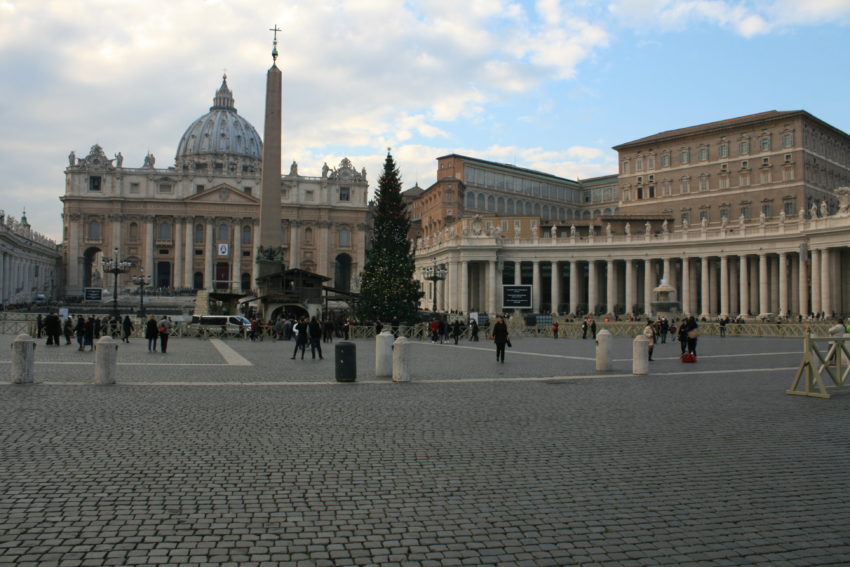
VATICAN CITY — I did exactly what I was told not to do Tuesday. I went to St. Peter’s Square. It was the opening day of the Jubilee, the Catholic Church’s year for remission of sins, its first since 2000. The timing could not have been worse for Rome’s security forces and paranoid relatives of American expats living here. It comes less than a month after terrorists killed 130 people in Paris and the FBI said Rome is high on Isis’ to-do list. It makes sense: A different religion. Thousands of Catholics from all over the world meet in one of the biggest open spaces in Europe. Italy already has 825,000 Muslims. Government agencies around the world have been saying there have been terrorist cells in this country since 9-11. People wondered if Isis had already rented out the Marriott.
Friends in America told me to stay home. I laughed. This advice comes from a country where more than 30,000 people a year die from guns, ownership of which is, of course, their constitutional right!
I wanted to see how Rome handled security. Ever since the Paris attacks, I’d seen camouflaged soldiers carrying machine guns in subway stations. Police cars clogged busy street corners. Every government building had extra security.
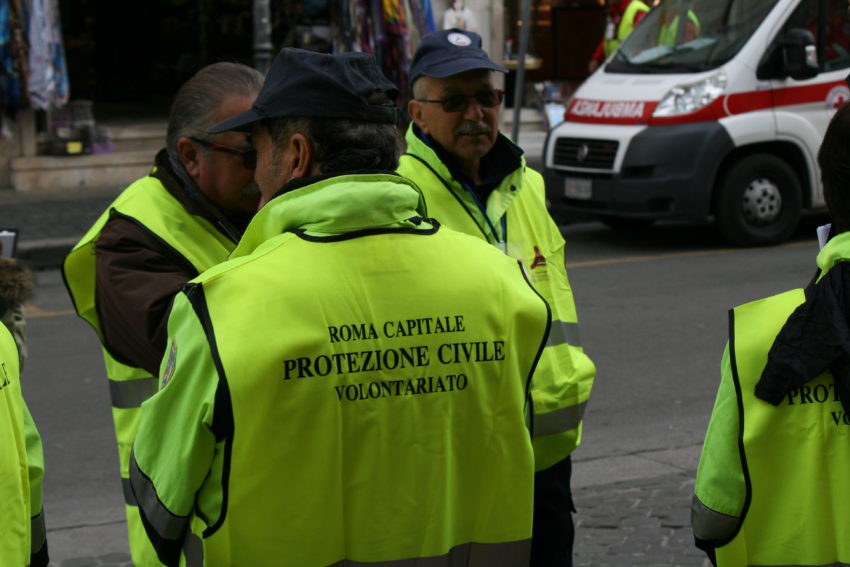
So I took a bus across the Tiber River to Prati, my old neighborhood near the Vatican. I walked down Via Porta Angelica, one of the main tourist thoroughfares into St. Peter’s Square. An army truck with armed soldiers manned one corner. Dozens of men and women wearing green neon and navy coats with “Protezione Civile Volontariato” stood on the street. A Red Cross truck and a bevy of medics in red and white outfits stood outside the Vatican wall, ready to move at the first sound of a bomb or view of a flying body part.
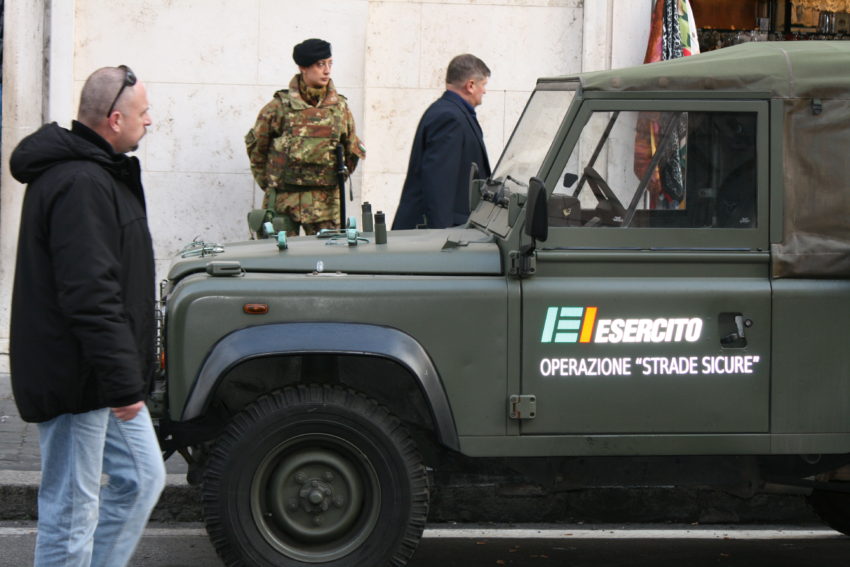
I came to the back of a line going through security. I stood behind a capuchin monk wearing his trademark robe in dark brown, the color of a cappuccino, and a small entourage from Nigeria carrying green and white Nigerian flags. Across the street a female soldier stood guard behind an army truck near a souvenir shop. A line of Carabinieri cars were strung along Via dei Corridori, one of the charming side streets outside the Vatican walls.
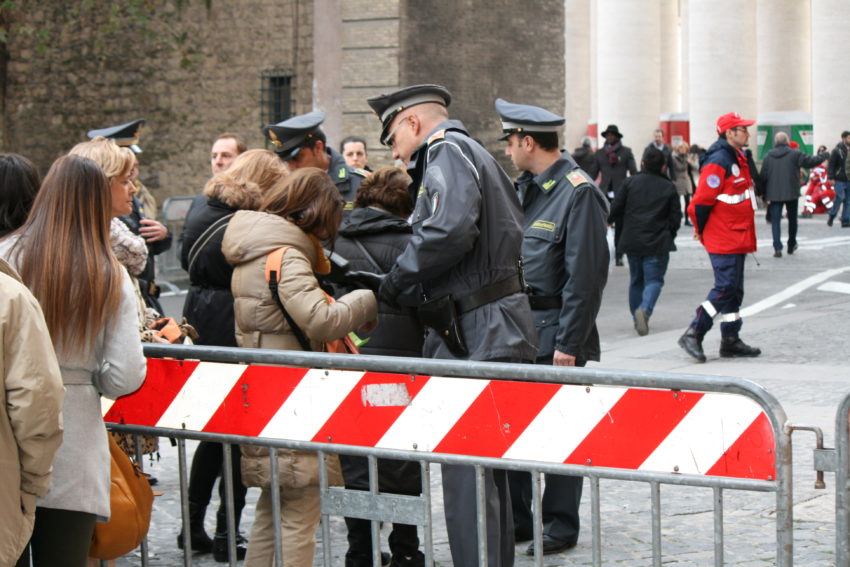
The line took all of five minutes. A tall officer from the Guardia di Finanza, sporting a five o’clock shadow, wanded me and had me open the two zippers of my small backpack, revealing a camera and an extra lens. He had me pull out my proud new A.S. Roma keychain. He waved me through with no expression, obviously a Lazio fan.
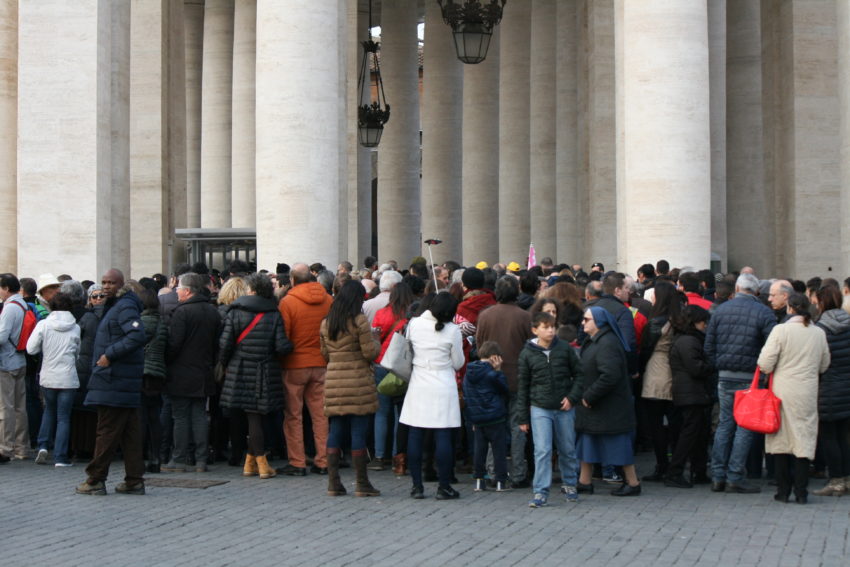
What I saw inside shocked me. St. Peter’s Square, where in 1978 I watched the inauguration of Pope John Paul I with 400,000 others, was practically empty. A crowd haphazardly lined up to enter the Holy Door, the first time it had opened since 2000. People took pictures of the nativity scene next to the big Christmas tree. Other than that, there weren’t many more people than on any given Sunday. The only signs of something eventful happening was a woman TV reporter giving a live stand-up and a long, elevated platform holding TV crews.
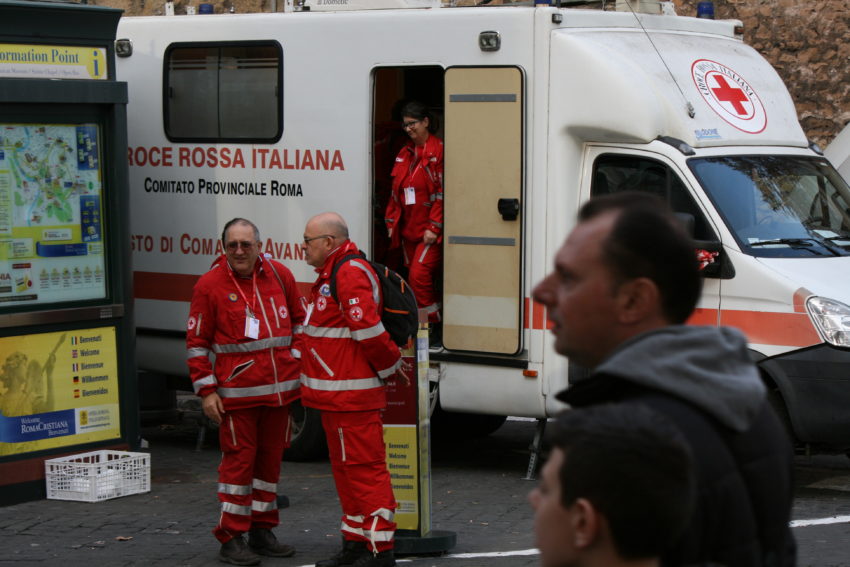
I walked freely around and through the wooden barricades. Police didn’t stop me. They were too busy talking. Some Carabinieri, the national police force with military duties, shared a joke. Red Cross workers looked as bored as husbands on their wives’ shopping sprees down Via del Corso.
That morning, about 70,000 people came to the square and surrounding streets to hear Pope Francis discuss “The Mercy of God,” this year’s theme. While Rome pays less attention to the Vatican than places like the Philippines or Brazil, Francis is very popular here. He’s progressive, open minded and transparent. He represents a new direction in a church that dates back 2,000 years.
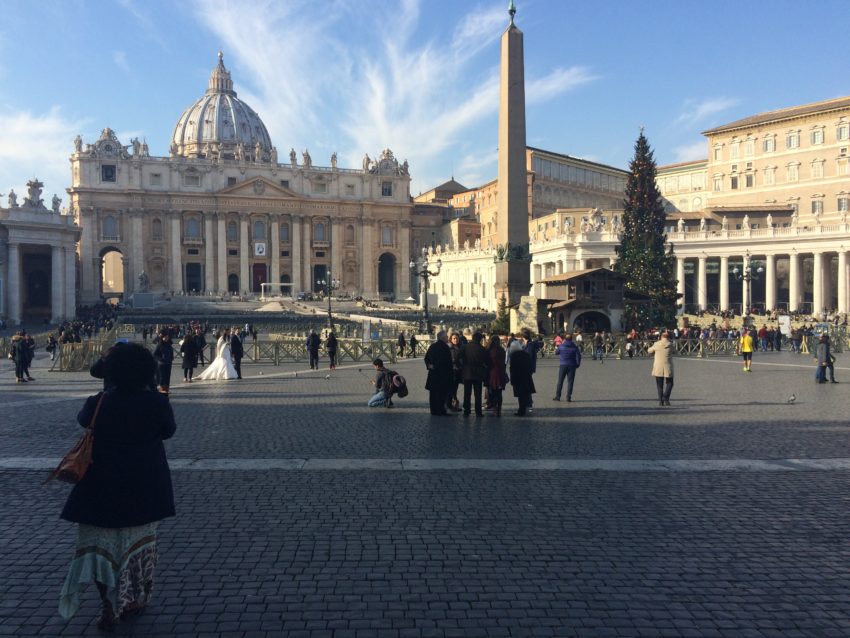
But shortly after he finished talking, the square emptied. Today I returned and there wasn’t even a security line. It’s the first two days of a year-long Jubilee that’s expected to draw 33 million pilgrims and it had all the buzz of bingo at the First Presbyterian in Dubuque, Iowa. Sure, 70,000 aren’t going to hang out in a piazza all day. But Jubilee here is huge. It’s huge around the Catholic world. I came to one inescapable conclusion.
Terrorism.
People are staying away from Rome in droves. Hotels report occupancy is down 20 percent from a normal December. Il Messaggero, Rome’s main newspaper, reported that of the city’s 160,000 rooms, 48,000 are empty. The four-star Hotel Accademia near Trevi Fountain even dropped prices. The Vatican reluctantly acknowledged the terrorists’ effect on the Jubilee.
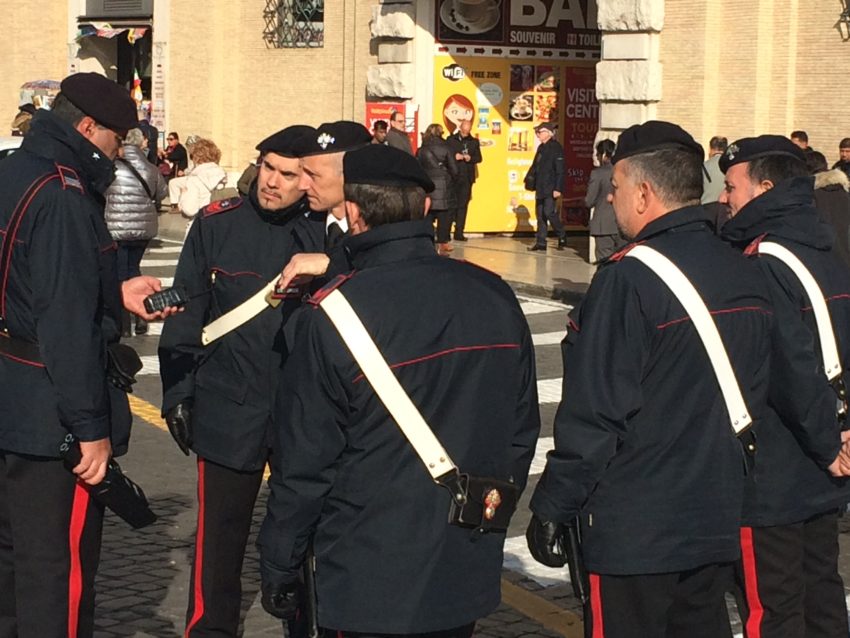
“There has been no specific threat, but the context is troubling,” said Rome prefect Franco Gabrielli, a Vatican official in charge of ensuring the Jubilee runs smoothly.
Prime minister Matteo Renzi may have fanned the flames when he was quoted this week saying, “We are faced with a dangerous enemy no one can underestimate.”
I will. I’m not worried. Isis terrorists are punks. I feel very safe in Rome. After talking to numerous Romans, reading reports and just general observations of Italy after living here nearly two years, I don’t believe Isis will attack Rome. Many Romans think the mafia won’t allow it.
Huh?
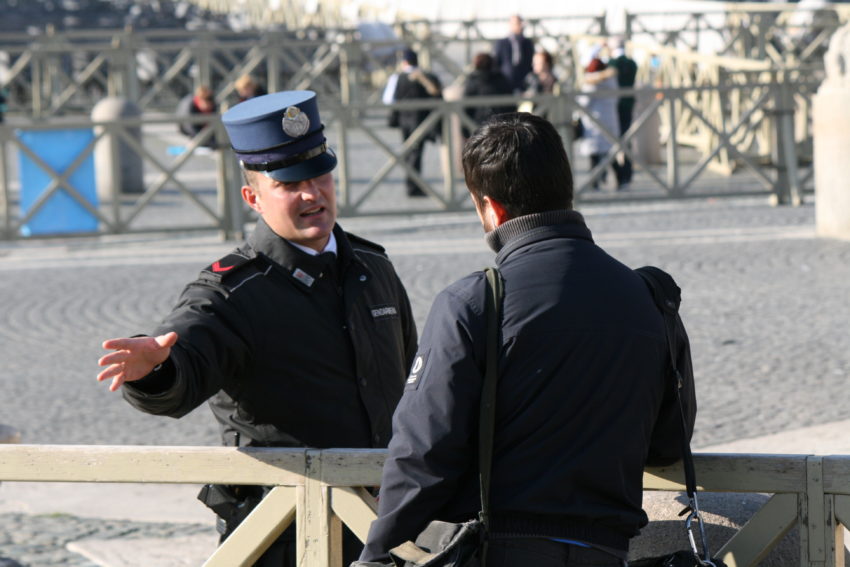
How do organized crime lords know what local Muslims, if any, are terrorists and who are just trying to carve out a better living for themselves? No mob boss is as ruthless and bloodthirsty and as big an asshole as Donald Trump.
“They know everyone in their town,” an Italian friend told me. “If they don’t know them, they’ll make it their business to know them.”
But what about Rome, a metro area of 4 million people? This isn’t a village in Sicily living off olive oil. The only way to see the mafia in Rome is if you look inside Roman politicians’ pockets. However, wouldn’t a war between Isis and the mafia be worth watching?
It would make “Alien vs. Predator” look like a cat fight at Nordstrom’s.
Also, I don’t think Pope Francis is on any Isis dartboard. He, like popes in recent past, has reached out to the Muslim world. Isis attacks out of blind religious extremism and political revenge. It attacked Paris because France attacked Syria. Renzi has said Italy will not join Syrian bombing raids. If Isis is here, they’re likely in a piazza somewhere eating pizza.
I’m going about my life. If the terrorists affect even my daily routine, they win. When Christmas comes, I’m going someplace I’ll also feel safe, where terrorists won’t dare show their faces unless they prefer pain over death.
Paris.


December 9, 2015 @ 1:31 pm
Never crossed my mind to go to Piazza San Pietro yesterday because I try to avoid crowds unless I have a reserved seat. Never have worried about my personal safety in terms of terrorism. I met an hotelier today that confirmed occupancy is down, but they think it will recover for New Years. Spero di si! Europe really could use some tourist Euros and this is such a great time of year to travel here.
We travel because we can and with no fear except that perhaps the train will be late or the exchange rate will change adversely. We too will be in Paris (next week) then on to London for Christmas!